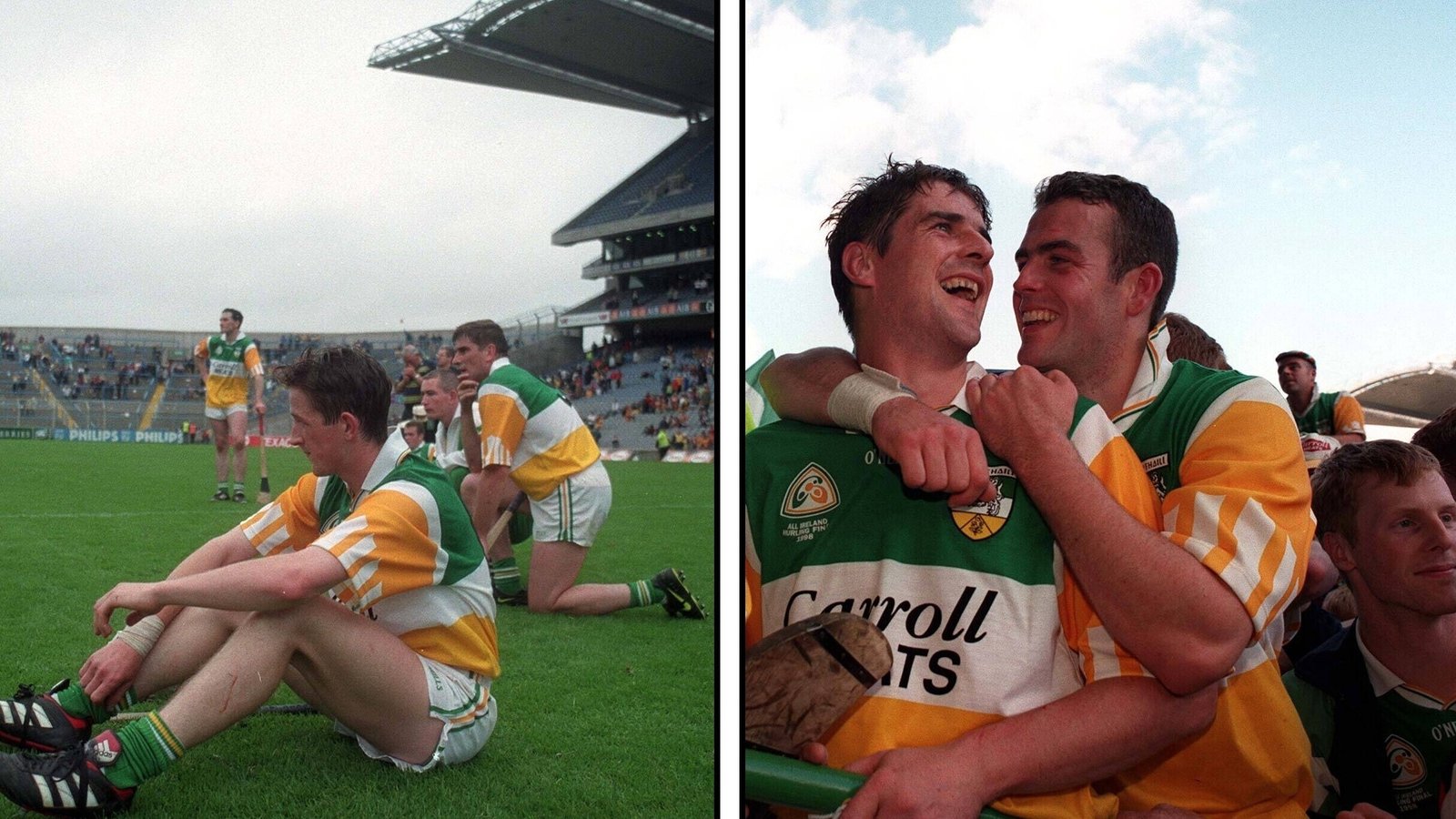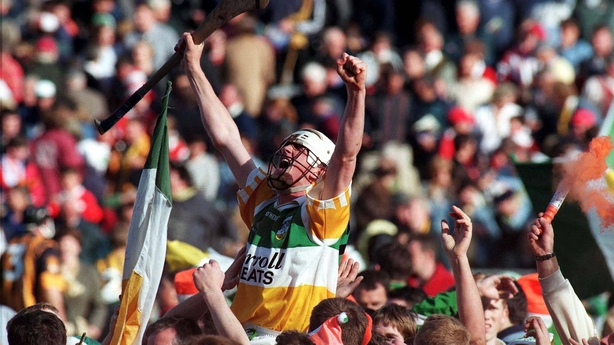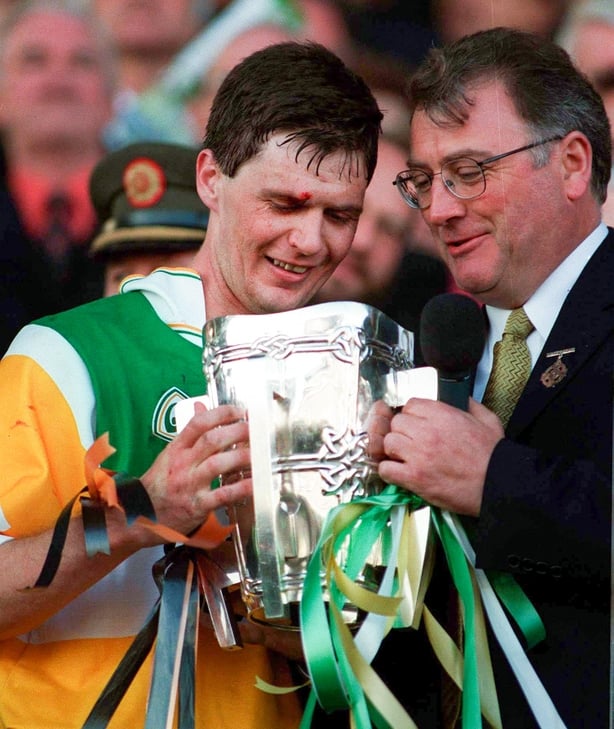Sports
When Offaly got off the canvas to hit back at the Cats

This generation of Limerick hurlers have proven time and time again that they have little need for extra motivation going into big games.
But if they did require a spur going into Sunday’s All-Ireland semi-final, they could simply look across towards the opposite dressing room in the bowels of Croke Park and remember what happened the last time they faced Cork.
The Rebels came out on top in a pulsating 3-28 to 3-26 victory in the Munster round-robin clash at SuperValu Páirc Uí Chaoimh in May and in the aftermath Limerick manager John Kiely admitted the outcome was “bitterly disappointing” for his side.
However, they bounced back to claim provincial honours for a sixth time in succession and will go in as heavy favourites against Cork to right an increasingly rare wrong with a spot in an All-Ireland final at stake.
The challenge of going up against a team that you’ve already lost to earlier in the championship and finding a way to gain revenge second time around brings back a few memories for Offaly legend Michael Duignan.
Back in the topsy-turvy 1998 campaign, he and his team-mates came up against Kilkenny in two finals in the space of 70 days.
The first of those – the Leinster decider – went the way of the Cats 26 years ago this week by a 3-10 to 1-11 scoreline, in what was the counties’ first championship meeting in three years.
Previous to that, Offaly had won the 1994 Leinster semi-final and the 1995 final in a rivalry that ebbed and flowed in a way that it most certainly hasn’t since.
“We had a poor day in the Leinster final and Kilkenny beat us fairly comfortably,” Duignan recalls of 1998.
“DJ Carey got two late goals from 21-yard frees. They (Kilkenny) weren’t actually great either. It wasn’t a very good game to be honest with you. Neither of us played that well.
“We just weren’t going well. We were going through the motions more than anything and you know the fallout after that. The whole ’98 year was manic.”
Manic is certainly one way to describe that summer for Offaly’s hurlers. In the aftermath of the Leinster final defeat, manager Babs Keating made his infamous “sheep in a heap” remark about the team, which ultimately led to his departure and replacement by Michael Bond.
“It was a little bit more complicated than the Cork-Limerick thing at the minute,” Duignan quips.
More complicated but less condensed – on paper at least. It was just the second year of the back-door system in the hurling championship, which offered Offaly a reprieve and a pathway towards September.
Ulster champions Antrim were the first hurdle to vault in the All-Ireland quarter-final which the Faithful County did with nine points to spare.
‘Michael Bond made a huge difference’
Then came what can only be described as a saga against reigning All-Ireland champions Clare, who themselves had come up against Tipperary in both the provincial and All-Ireland finals of 1997 – and prevailed on both occasions.
The first game ended in a draw, the second was blown up five minutes early by referee Jimmy Cooney, prompting a sit-down protest from Offaly supporters. The game was subsequently re-fixed for Semple Stadium where Duignan and co booked a spot in the All-Ireland final, where none other than their Leinster final conquerors Kilkenny awaited.
And that run of games under a new manager, who gave Offaly talents licence to express themselves with few limitations, meant they felt like a different team by the time they re-emerged for another go at the Cats.
“Michael Bond made a huge difference,” says Duignan. “We went back to basics, more hurling in training and we got our confidence back
“We were training four or five times a week, which was unusual back then. There was no gym work, it was all field work and hurling but you were playing Clare, who were the All-Ireland champions who had beaten us in ’95 in the final and we felt we had a score to settle.
“We were complete underdogs and rightly so against them the way we had been going in ’98. So that took all our focus and it wasn’t until the final whistle blew in Thurles that we even thought about the All-Ireland final.
“We had a very good team, very good players but we probably lost a bit of belief in our own ability and Michael Bond was brilliant on the man management side. All our key players came back to form, (Brian) Whelahan, John Troy and (Joe) Dooley, and once we beat Clare the third day in Thurles, we felt we would beat Kilkenny in the All-Ireland and we had the confidence we would improve.”
Offaly also had no fear of Kilkenny in that era, both underage and at senior, and coupled with the focus they had on grappling with Clare for the guts of a month, never had time to fixate on the Cats or what had transpired in the Leinster final.

Indeed, any tactical tweaks for the All-Ireland final were incidental rather than a forethought.
“We had moved on from (the Leinster final). We were so bad on the day, so we knew we had to be a lot better and Kilkenny would be a lot better,” says Duignan.
“The biggest thing on the day of the match was Brian Whelahan turning up sick at the team hotel with a bit of flu on the day and he wasn’t in good shape at all.
“So that was the biggest worry we had. He was our key man and he was moved from wing-back after about 20 minutes in the final so I switched with him actually that day.
“He went up and scored 1-06 so I do slag him a little bit about where the flu went! It was a one-half flu but he played his way into the game because he was quite ill on the day.
“That probably just capped the madness of the year with what happened with him.
“That was Michael Bond’s sort of genius. He had a Plan A, B and C and when you ask about tactics, it was amazing, for a man who had no experience at inter-county management, he had no fear of doing the most unusual thing.
“He had no problem changing players around like that, which was very unusual really at the time, to take the best wing-back in the game and bring him up wing-forward after 20 minutes in an All-Ireland final.”
But the main thing from Duignan’s point of view in turning the tables on Kilkenny was that Offaly upped their own game
“The All-Ireland final was the complete opposite of the Leinster final in that Kilkenny played really well, it was only in the last five or six minutes that we got on top and got a late goal and a couple of points and pulled away from them,” he says.
“With everything that happened in ’98, the final itself is forgotten. Looking back on it, it was actually a fantastic game of hurling but people think more about the Clare saga than they do about the final.
“But it meant a lot to us to beat Kilkenny, I can tell you that. It was massive to beat Kilkenny in the final.”

As for this Sunday, Limerick and Cork’s paths to a similarly swift reunion have taken them through different straits but is there a danger that the Rebels have shown their hand somewhat from the first meeting?
“That is relevant. They have shown their hand a little bit but I think if you look at Cork last year in Munster, they scored 1-30 and they lost,” says Duignan.
“Limerick will go over that 30-point mark, up around it and over it, most days. Cork did it last year and lost, and did it again, putting up a massive score, 3-28 the last day.
“So something has changed with Cork and I think it’s all about all-out attack. They know if they sit back and be overly defensive against Limerick, they’ll destroy you because they can play so many different ways. They can play long, they can play short, all their backs can come up the field and their half-forward line can score from distance.
“And if you pull out too much, they can play it inside to the lads so they’ve so many options to hit that 30 points.
“So Cork’s approach is going to be simple. It’s going to be all-out attack, use the pace they have and use the bench that they have.”
Watch the All-Ireland Hurling Championship quarter-finals, Kilkenny v Clare (3pm on Saturday on RTÉ One) and Limerick v Cork (4pm on Sunday on RTE2). Both games available on RTE Player. Follow a live blog on rte.ie/sport and the RTÉ News app and listen to commentary on RTÉ Radio 1










